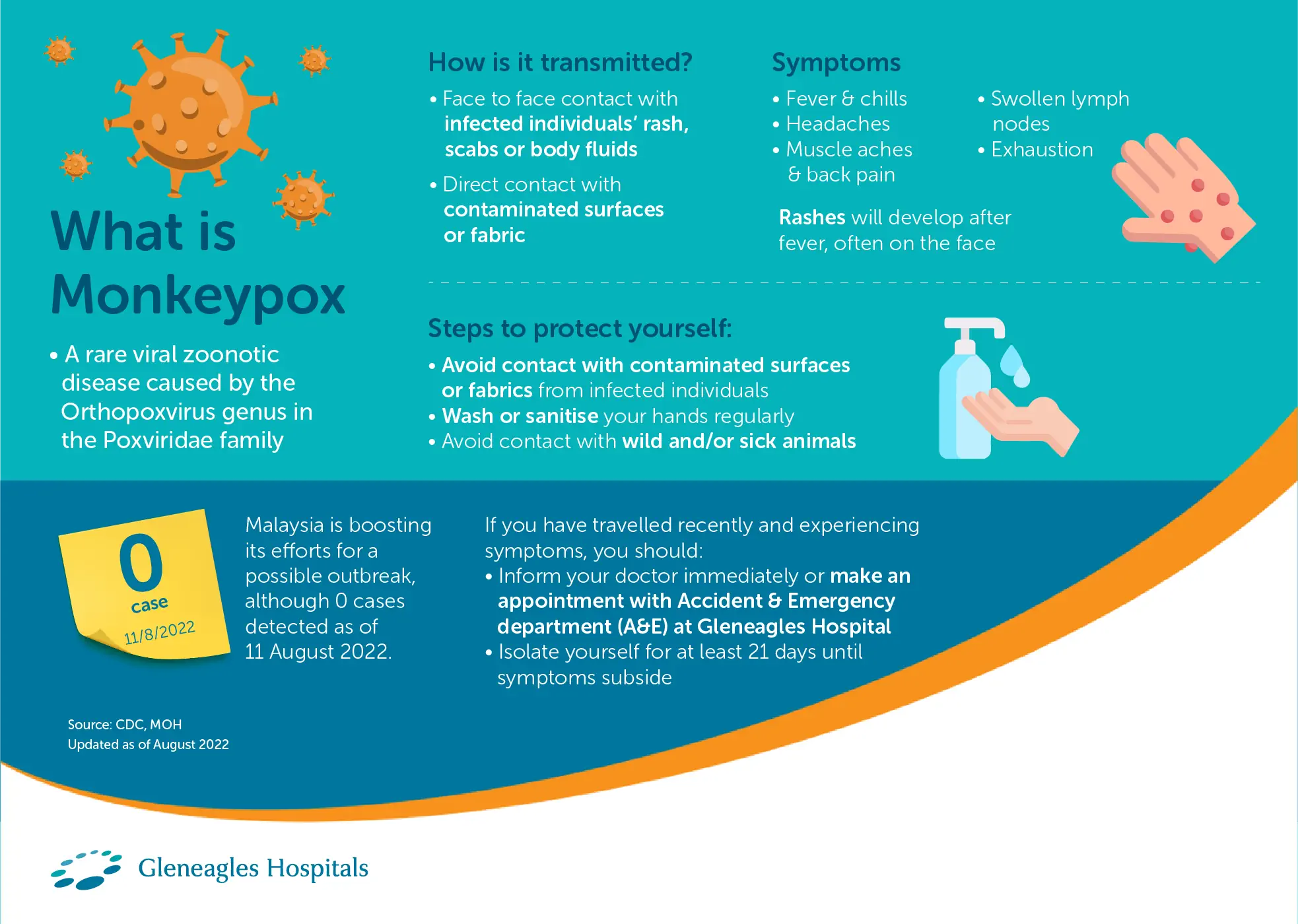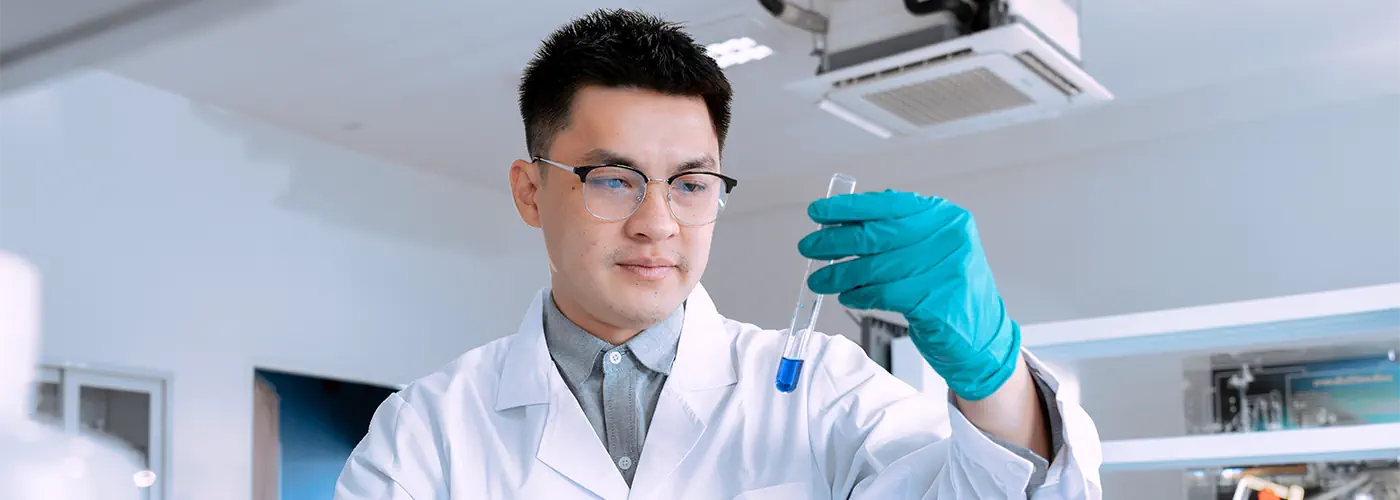Topics
Malaysia boosts its efforts to prepare for a possible monkeypox outbreak although there are no cases detected in the country as of 11 August 2022. Health Ministry of Malaysia has confirmed that the suspected cases in Malaysia were negative for monkeypox, a rare disease caused by the mpox virus.

About the Monkeypox Virus in Malaysia
The monkeypox (mpox) virus is not a new virus. Mpox (monkeypox) infection is a rare viral zoonotic disease caused by the Orthopoxvirus genus in the Poxviridae family.
It is transmitted through face-to-face contact with an infected animal or an infected individual’s rash, scabs, or body fluids, and through direct contact with contaminated surfaces or fabric with the virus.
Symptoms of Monkeypox in Malaysia
It is important to distinguish this severe disease from other rash illnesses, such as chickenpox, measles, bacterial skin infections, scabies, and syphilis by looking at monkeypox symptoms. In humans, the symptoms of monkeypox are similar to but milder than smallpox. The illness begins with:
- Fever
- Fatigue / tiredness
- Headache
- Muscle aches
- Back pain
- Joint pain
- Swollen lymph nodes
A rash typically develops within 1 to 5 days after initial monkeypox symptoms. It begins on the face before spreading to other areas of the body which includes the mouth, genitalia, and anus. The rash may be painful or itchy.
The incubation period (time from exposure to the initial presentation of symptoms) for monkeypox is usually 6 to 13 days but can range from 5 to 21 days. In most cases, the symptoms subside within 2 to 4 weeks.
Transmission of Monkeypox
According to World Health Organization (WHO), the monkeypox virus is transmitted through:
- Direct contact with an infected person’s rash, scabs, or body fluids. Direct contact includes prolonged face-to-face contact, hugging, kissing, holding hands and sexual contact.
- Objects, fabrics, and surfaces that are contaminated with the virus.
Treatment for Monkeypox
Most cases of mpox are mild and resolve on their own within a few weeks without treatment so there is no specific treatment to treat mpox. However, in some severe cases, hospital treatment may be necessary.
Certain individuals are at a higher risk of requiring hospitalization for mpox to avoid secondary bacterial infections:
- Older people: Advanced age can weaken the immune system, making it harder to fight off the infection.
- Young children: Children, especially infants, have developing immune systems and may be more susceptible to severe mpox symptoms.
- People with weakened immune systems or underlying conditions: Conditions or medications that affect the immune system can increase the risk of complications from mpox.
Steps to Protect Yourself from Monkeypox
For those travelling to countries with active cases, here are some preventive measures that can be taken to prevent infection with the monkeypox virus:
- Practice good hand hygiene at all times. Wash your hands with soap and water or use an alcohol-based hand sanitiser.
- Avoid direct contact with body fluids and contaminated materials such as bedding, and clothing used by infected individuals.
- Discuss your sexual health and any symptoms you may be experiencing with your sexual partner.
- Avoid contact with wild and/or sick animals that could harbour the virus.
For those who have recently travelled to countries with reported monkeypox cases, if you are experiencing the symptoms listed above, you should:
- Seek medical attention immediately.
- Inform your doctor about your recent travel history.
- Stay isolated from other individuals.
- Self-quarantine for at least 21 days until symptoms subside.
Make an Appointment at Gleneagles Hospitals
If you are experiencing any of the symptoms mentioned, please seek immediate medical attention at the Accident and Emergency (A&E) department at your nearest Gleneagles Hospital to avoid developing severe mpox.








